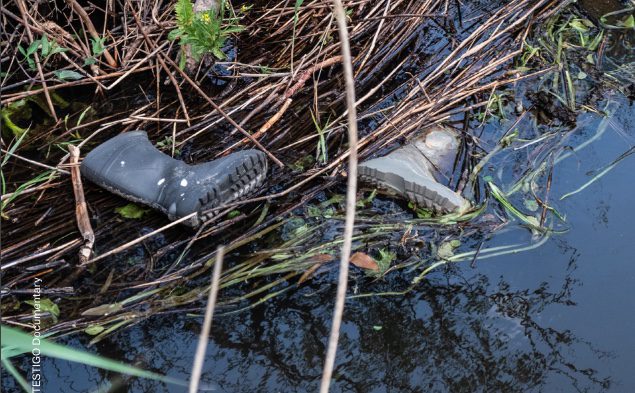
No Safe Passage. Migrants’ deaths at the European Union- -Belarusian border
Executive Summary
This report presents the data on migrant deaths on the EU-Belarusian border since the traffic on this route intensified and the humanitarian crisis in the border area began in the summer of 2021. By the end of March 2024, 116 border deaths had been documented in four countries (Belarus, Latvia, Lithuania and Poland) and at least another 26 cases had been reported by migrants in testimonies.
Main causes of migrants’ deaths at the EU-Belarusian border
While the direct causes of the border deaths are a subject of formal inquiries by local authorities and, in many cases, are not known to the public, general circumstances and indirect causes may be derived from analysing cases. Harsh conditions and prolonged stay in the forest due to pushbacks can lead to exhaustion and hypothermia, the most frequent cause of death in the border areas. Eleven bodies have been found in rivers, which migrants sometimes choose as a route, hoping that they are easier to cross than high border fences. Five people have died in car accidents after being chased by the police or border guard. Finally, lack of preparation of local authorities, including medical staff, can put migrants at greater risk.
Actions needed to minimise the risk of death for migrants crossing the EU-Belarusian border
The humanitarian crisis at the border has resulted in many human tragedies, including deaths due to violence and the weaponization of the landscape. The necessary minimum actions to prevent further deaths include:
• Restoring laws’ and regulations’ compliance with international law and state constitutions by eliminating pushbacks from the legal orders of Poland, Lithuania and Latvia.
• Changing border guard officers’ practice by sending written instructions from the ministers of internal affairs to the head of board guards and monitoring their implementation.
• Introducing search-and-rescue protocols and ensuring that they are implemented.
• Establishing emergency humanitarian and first-aid medical points near the EU-Belarusian border to provide migrants facing extreme conditions with urgent medical assistance, food and shelter.
• Halting the criminal persecution of human rights defenders and humanitarian activists who help migrants in the border regions, as well as within the country.
Moreover, deceased migrants’ relatives’ right to justice, information, closure and freedom of religion and non-discrimination must to be respected.
